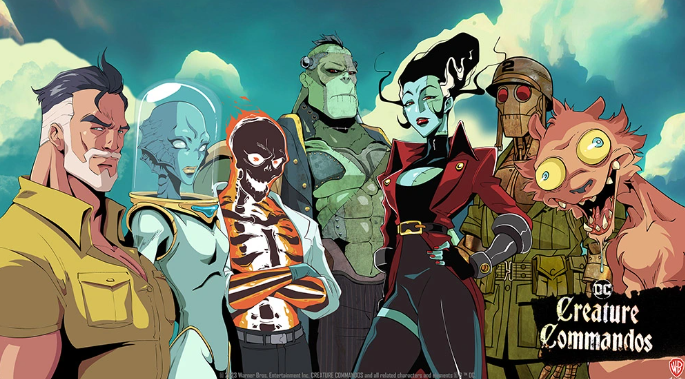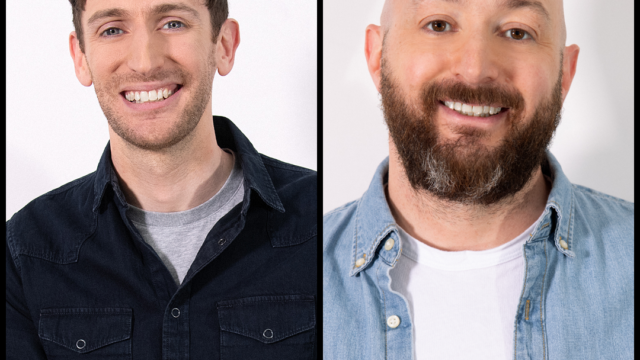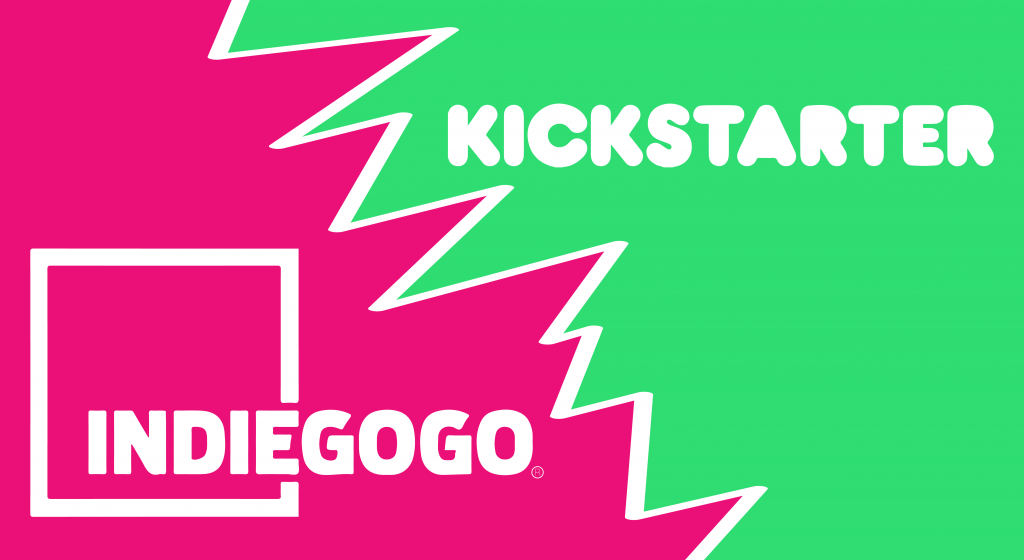Kite Man: Hell Yeah! Composer Michael Gatt Hits All The Right Notes
On July 18, Kite Man: Hell Yeah! made its debut on Max. The Max Original adult animated series features characters that some diehard DC fans might be very acquainted with. For casual fans, the series could perhaps act as an introduction to a few characters that might often get overlooked.
Kite Man: Hell Yeah! follows DC Comics fringe characters Kite Man and Golden Glider as they take their relationship to the next level. The couple open a bar in the shadow of Lex Luthor’s Legion of Doom while just trying to get by. The bar welcomes an array of interesting and offbeat characters that hang around including Sixpack, Malice, and even Bane.
Tasked with taking the comedy of Kite Man: Hell Yeah! and tying it all together with a snappy score is composer Michael Gatt. With a background that’s sent him all around the world, Gatt is no stranger to DC comics. As a fan since childhood, Gatt has also scored some DC projects including Batman: The Long Halloween and DC Super Hero Girls.
Gatt sat down with Bubbleblabber to discuss Kite Man: Hell Yeah! and its musical inspiration, the importance of finding balance, and the non-linear path he took to become a composer.
As I made my way into our video call, Gatt was casually strumming away on his guitar, keeping his mind busy.
Matthew Swigonski: Sorry, I didn’t mean to interrupt your jam session.
Michael Gatt: No, it’s just me and my guitar here. You know, you do these interviews and you just want to be on time, right? So I was just killing time.
Matthew Swigonski: I mean, I’m obviously jealous of you being able to play an instrument. I never had a chance to actually be good at playing. I definitely tried, but it just never gelled. Were you always super talented with instruments?
Michael Gatt: That’s a kind way to put it, man. I appreciate that. I started playing guitar when I was eight years old and it’s like everything else. It’s just a lot of time, you know? And it just compounds and compounds and then I got into playing in bands… pretty young actually, when I was 13 I believe. By the time I was 15, I started playing in bars with people who were much older than me and by much older. I think being around those older performers and musicians helped push me. We’re all our own worst critics sometimes.
Matthew Swigonski: So what was the name of that first band? Can you recall?
Michael Gatt: Oh my gosh. I think it was called, and this does not age well… it was called Armed and Dangerous. We were like a hair band, you know? That’s a great segue in equipment because for Kite Man: Hell Yeah! as far as an overview of the score, was to lean into 80s hair band music. That’s something I think that has a real authenticity. For me, it was really nice to have that as part of my own journey in music and to have those roots.
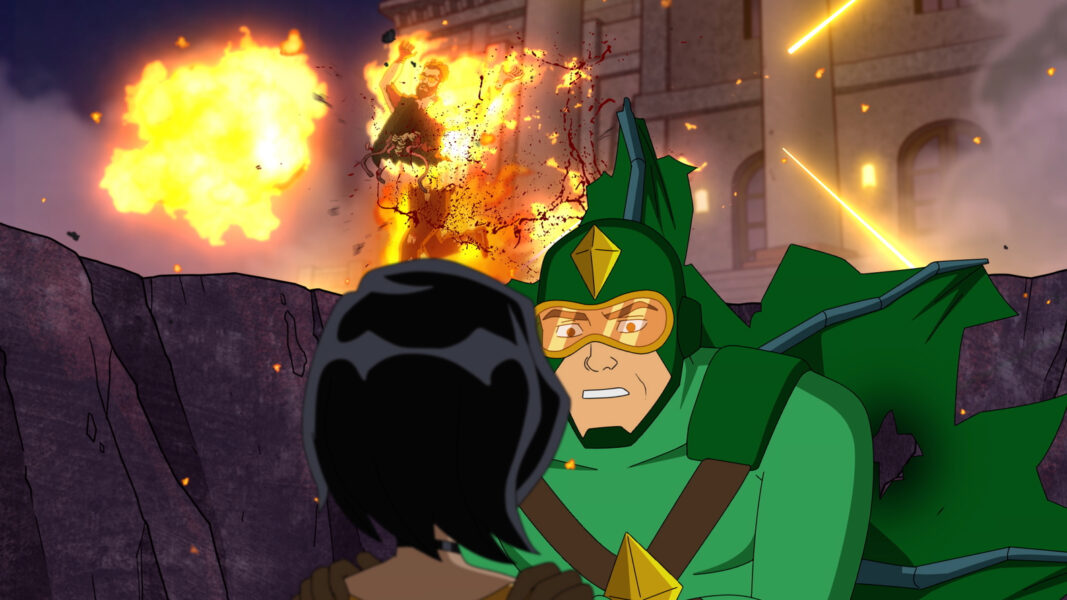
Matthew Swigonski: Were you a fan of DC Comics growing up? And were you aware of Kite Man: Hell Yeah! going into the project?
Michael Gatt: I have been a lifelong DC comic book fan. I’ll say that it’s been an ebb and flow in my life. I was never a consistent collector, but I was always coming back to comic book stores. I was always a big Batman fan and I liked Marvel too. When I transitioned to writing music after I left playing in bands, scoring TV commercials and jingles, I did this thing where I journaled about what I wanted very specifically. And one of the things I had on there was that I wanted to do my own Batman animated movie. I’ve actually done two iterations of Batman now. One for DC Super Hero Girls and one for Batman: The Long Halloween.
I knew about Kite Man: Hell Yeah! and got more familiar with him through Harley Quinn and then I found out that they were going to make a show around him. I love the character, the voice acting is phenomenal, and the writing on the show is absolutely top-notch. I’m a huge fan of the show. I mean when you do what I do for a living, you watch through these scenes countless times. Even now that it’s out. I’ll watch it again and just laugh at every joke. I think when you see so many details and so much care, you can tell when people really love what they’re doing. You can tell there was an authentic connection by the creatives to do that.
Matthew Swigonski: So do you think being a fan helps you in your job? Or are you able to detach yourself from the project and look at it from an outside perspective?
Michael Gatt: I love the process of writing music, so it’s already a win for me when I enter into a project. But kind of in reference to what I was just saying, it’s really about the storytelling and less so about the subject. Take the costumes that the characters might be wearing and the world that they live in. Do I care about them? Are the stakes meaningful to me? That being said, it is absolutely awesome when all of those things, all those boxes, get checked simultaneously.
Matthew Swigonski: You kind of touched on it before, but how did the inspiration behind the sound of Kite Man: Hell Yeah! come about?
Michael Gatt: I have to give credit to the creatives of the show for that because it was from their direction from my first call with them. It was really like, ‘80s hair band’ and as I invested myself further in the show, it made perfect sense because Kite Man: Hell Yeah! is like ‘hell yeah,’ you know? The genre is very fitting for [his character] to take that kind of genre and weave it in and out of the DNA of scene scoring, which was super fun. And that really came down to literally injecting a lot of that kind of 80s guitar playing into guitar tones and dual leads and harmonies.
Matthew Swigonski: Where would you say you draw the most inspiration from?
Michael Gatt: You know, I get my inspiration from what’s on the page if I only have a script or what’s on the screen. To me, the story really in a way already writes the music. I’m not looking to any other musical sources. It’s more about trying to capture something that embodies the character or embodies the story.
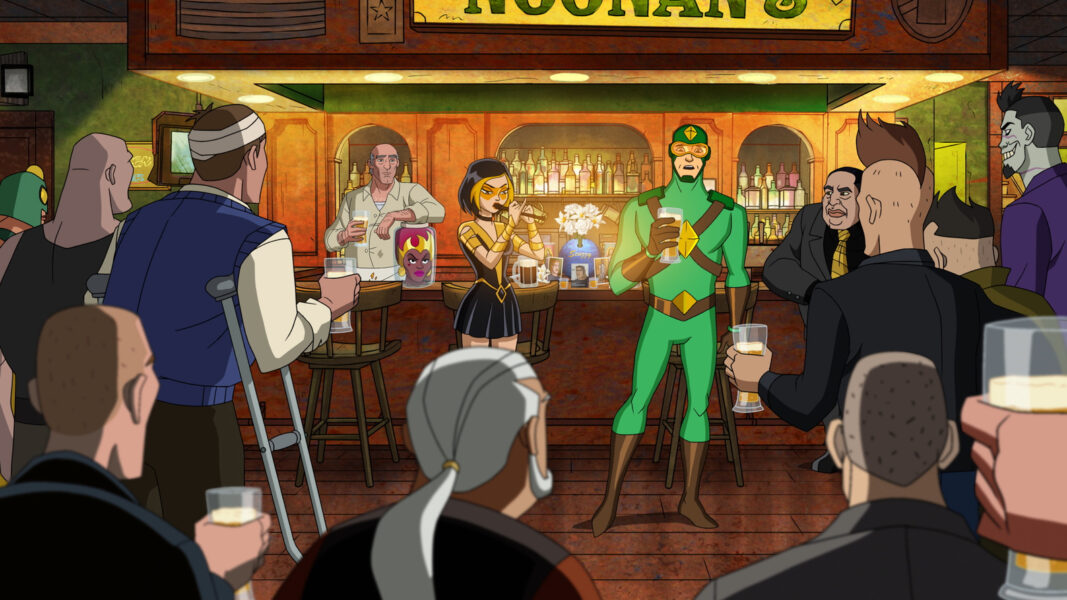
And it helps me if there is a legitimate philosophical foundation for why I’m using this instrument for this character. I did a series called DC Super Hero Girls they’re all different personalities, all different powers. For Supergirl, she was more of a hard rock. Giganta was metal and Bumblebee I went 8-bit with her. There’s storytelling in the fabric of the music that you may or may not realize. You’re getting audio signals that are telling you what’s happening visually.
Matthew Swigonski: Once you get that inspiration, what’s your creative process, going from the point of being hired to actually getting in the studio? Is it a specific process or is it more touch and feel?
Michael Gatt: It’s a combination of both. Because I have always done an absolute deep dive on whatever it is that I’m that I’m up for. If there are scripts available I will read the scripts for the whole season. If there’s pre-existing content, I will watch or rewatch all of it. I want to just completely engross myself in that world and then I’ll talk to the creatives and hear what their vision is for the show or the film. I see myself as part of the service industry and pride myself on putting my sound and character into my scores, but ultimately I’m here to serve the filmmakers.
And it’s kind of like all of the work kind of being done in my mind before I even sit down. With Kite Man: Hell Yeah! I just really engrossed myself in the idea of what might be happening. Then I got the direction from the creatives. And I think it was like a day later that I sat down and wrote the main title. I just started running with the themes. It really helps to fast-track that process.
And then ultimately, you’re doing spotting sessions for the episodes where I’m already laying down a ton of groundwork for the sculpting, curating, and creating the sounds that I’m going to use for a show’s palette if you will. A spotting session, if you’re unfamiliar, is a meeting with the creatives and you just talk about the emotional narrative. You’re not necessarily talking about instrumentation or anything in musical terms, it’s more about ‘What do you want people to feel?’ That’s a whole rabbit hole we go down.
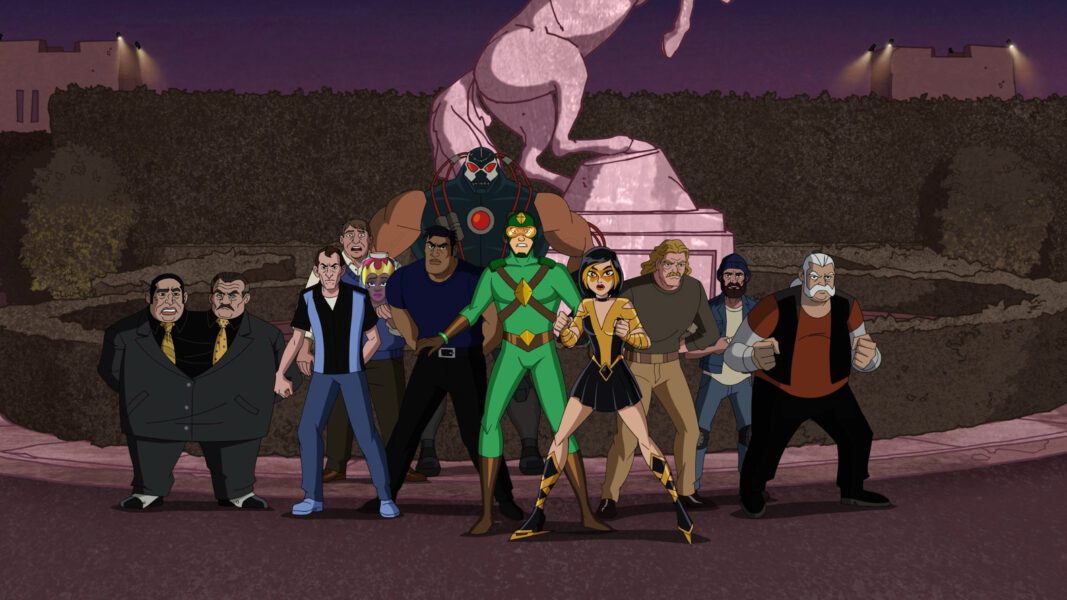
Matthew Swigonski: Do you think it’s a challenge to create a meaningful score while not trying to outshine the story or what’s on screen?
Michael Gatt: That’s a very flattering way to put it but I would say it’s more in terms of knowing when not to call attention to the score. And then when it is a heavy moment, like really leaning into it. That balance is just another dynamic that you always have to keep an eye out for. Personally, from my background in bands and making records, I always look at the dialogue. Like it’s the lead vocal on a track. And it’s like ‘Yo hey, you know, love your guitar playing and solo ability but I can’t hear the lyrics, you know?’ So it’s the same thing. It’s like the dialogue is king and takes precedence over the rest.
Matthew Swigonski: Are you the type of artist who can never turn off their brain? Are you always thinking about music in your free time or can you turn it off and enjoy life without thinking, ‘Hey, this sound would make for a good score?’
Michael Gatt: [Laughs] Well, I will say… I’ve been trying to turn it off. I can’t turn it off, but I’ve been trying to turn it down. Because it is pervasive, it’s pretty all-encompassing. At the same time, it’s also fed by a lot of passion. Going to sleep thinking, ‘Oh, I could do this. Or I could do this.’ I had submitted a reel for Batman: The Long Halloween that was very against type and it totally resonated with Butch Lukic, the producer.
This is a totally noir-looking film, right? And you might be inclined to do something rather orchestral with it, right? I did a score that was completely synthesizer-driven for it. I met with Butch over Zoom, got the gig, then that next morning at 4 AM I got up like, ‘I know what this needs to be.’ And I just did the whole foundation for what is now the score that morning.
Matthew Swigonski: So if you could go back in time and visit your 13-year-old self, just as you’re starting your first band, and tell him that this is what you’re doing now, do you think that he would believe it?
Michael Gatt: No. Oh, totally, not. I think it’s a misattributed quote to John Lennon [that goes] ‘Life is what happens when you’re making other plans.’ But my life has just been an extremely circuitous path to this now. When I look at it, I have always loved movies, animation, television, and storytelling. And I just a huge fan of this medium. I grew up in Arizona. A big part of my childhood was going to the movies as an event in my family. We’d go to this restaurant every time, then we’d go see the movie of the moment. Movies of the moment at that time were like Jaws, actually I was too young but they took me anyways. But also Indiana Jones and Star Wars.
Years later, I was doing audio as an on-location sound person, and spent years doing that. It was this fun part of my life. I worked on Behind The Music and I did a ton of international traveling. I did work for Animal Planet and Shark Week and along that path, I went to do a behind-the-scenes interview with Hans Zimmer at Remote Control Productions. And so right there in front of me is Hans Zimmer. I’m thrilled that I ended up here and it all makes sense retrospectively, but it was not the plan.
Matthew Swigonski: That’s how it works for most people, right?
Michael Gatt: Right. Absolutely. I think that’s what makes life really interesting.
Matthew Swigonski: Looking ahead to the future, do you have any projects you can talk about?
Michael Gatt: Yes, I do. I have a project coming out for Dungeons and Dragons. It’ll be out before the end of the year. I’m super excited about it. As you might imagine it’s a very different thing than Kite Man: Hell Yeah! It is one of the many reasons that I love this kind of work because you just get to play in so many different lanes. I’ve been very, very fortunate. So, yeah, look for that before the end of the year.


